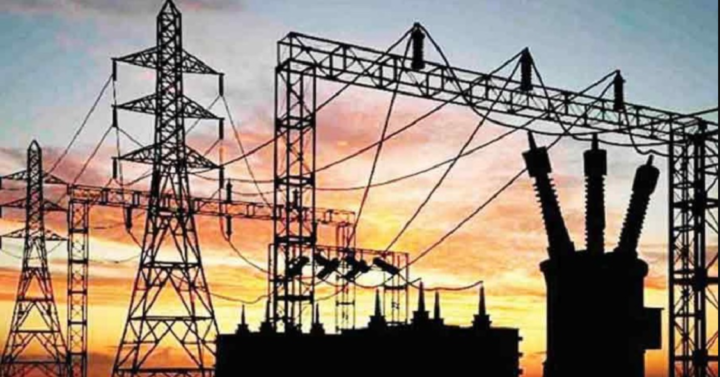The Nigerian Electricity Regulatory Commission (NERC) has laid out an extensive framework of licenses and permits in accordance with the 2023 Electricity Act. This comprehensive structure is designed to accommodate various activities related to electricity generation and distribution, particularly focusing on operations generating 1 megawatt (MW) or less and electricity distribution networks with capacities of 100 kilowatts (KW) and below.
These licenses encompass a wide range of activities, each tailored to specific segments of the electricity industry. Here is an in-depth overview of these licenses, their implications, and the role they play in shaping the future of the Nigerian electricity landscape:
**1. Generation License:**
– This license is granted to entities involved in the construction, operation, ownership, and maintenance of generation stations, as well as the supply of electricity.

**On-Grid Generation License:**
– This sub-license is intended for entities that connect to the national grid and engage in long-term agreements with the Transmission Company of Nigeria (TCN) and off-takers.
**Embedded Generation License:**
– Designed for entities directly connected via the distribution system, this sub-license involves agreements with privatized distribution companies (DisCos) and independent electricity distribution networks (IEDNs).
**Off-Grid Generation License:**
– Entities holding this license focus on generating and selling power to single buyers, thereby contributing to off-grid power solutions.
**2. Transmission License:**
– This license authorizes the transmission and conveyance of electric power over a high-voltage transmission system.
**3. Distribution License:**
– This type of license permits the construction, operation, and maintenance of a distribution system, ensuring the delivery of electricity to consumers.
**4. Supply License:**
– A supply license authorizes entities to sell electricity to license holders or consumers. It’s important to note that electricity supply is distinct from distribution and encompasses a range of activities beyond merely delivering electricity.
**5. Trading License:**
– This license allows its holder to engage in the purchasing, selling, and trading of electricity, facilitating a more dynamic and competitive electricity market.
**6. System Operation License:**
– Entities with this license have the authority to operate one or more transmission systems. They are responsible for managing generation scheduling, commitment, and dispatch, as well as the administration of the wholesale electricity market and settlement payments.
**7. Permits and Authorizations:**
– In addition to the core licenses, NERC also offers permits and authorizations for various specialized activities within the electricity sector.
**Eligible Customer:**
– This authorization enables customers to purchase power from a licensee other than a distribution licensee, fostering flexibility in power procurement.
**Mini-Grid:**
– This refers to an electricity supply system with its own generation capacity not exceeding 1MW, catering to smaller, localized power generation needs.
**Captive Power Generation Permit:**
– Entities seeking to generate electricity exceeding 1 MW for self-consumption can obtain this permit, facilitating self-reliant power solutions.
**Meter Asset Provider (MAP):**
– This license is granted to entities approved by the Commission to provide metering services. Their roles may encompass financing, procurement, supply, installation, maintenance, and replacement of electric energy meters.
**Meter Service Provider (MSP):**
– MSPs are individuals or entities certified by the Commission as manufacturers, suppliers, vendors, or installers of electric energy meters and/or metering systems, ensuring the accuracy and reliability of metering services.
These licenses and permits represent a pivotal step in the evolution of Nigeria’s electricity sector. They not only provide a structured and regulatory framework but also cater to the changing dynamics of the industry. By accommodating embedded power generation, hybridized generation, co-generation, and the generation of electricity from renewable sources like solar energy, wind, small hydropower, biomass, and other renewable sources, the 2023 Electricity Act is poised to promote a more diversified and sustainable energy landscape.
Moreover, the Act seeks to address longstanding issues within Nigeria’s electricity sector, particularly those stemming from the privatization of power distribution companies (DisCos). By reinforcing the regulatory structure and introducing mechanisms to tackle issues of bankruptcy within DisCos, the Act aims to create a more stable and reliable electricity environment for both industry players and consumers.
In summary, these licenses and permits under the 2023 Electricity Act provide a robust foundation for the growth and modernization of Nigeria’s electricity sector. They facilitate increased participation in the generation and distribution of electricity, promote cleaner and more sustainable energy sources, and help address lingering challenges in the power industry. As the nation continues to grapple with the demand for reliable and accessible electricity, these licensing provisions are expected to play a pivotal role in shaping the future of the Nigerian electricity landscape.
Support InfoStride News' Credible Journalism: Only credible journalism can guarantee a fair, accountable and transparent society, including democracy and government. It involves a lot of efforts and money. We need your support. Click here to Donate
